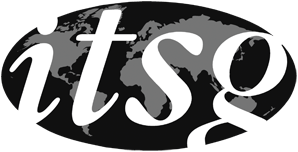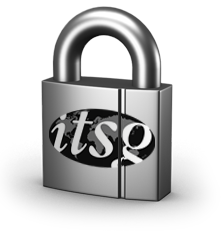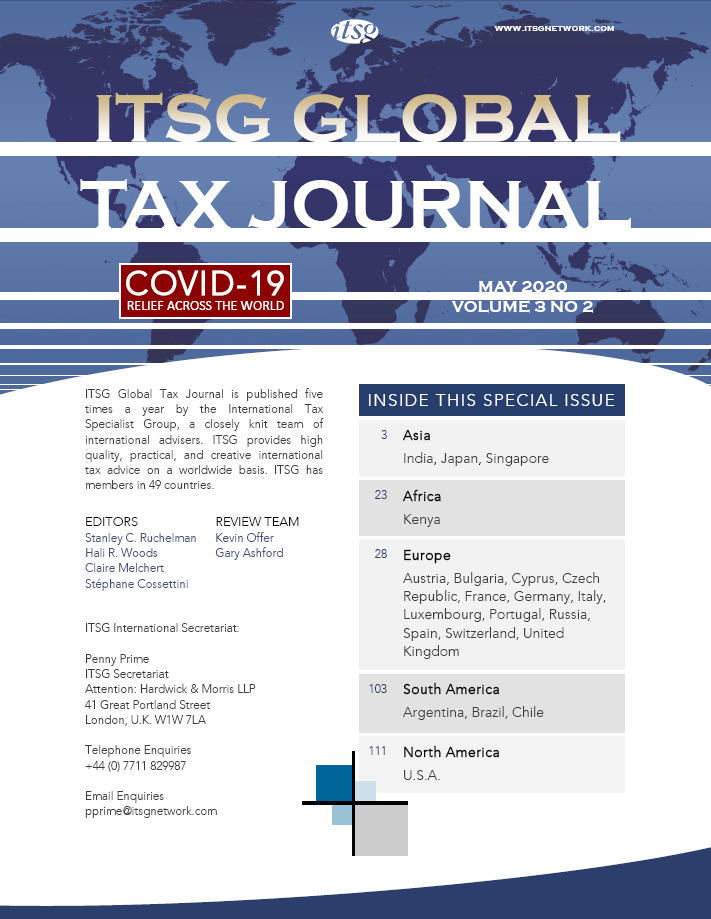The Canadian federal government has announced, in addition to extensions to some filing and payment deadlines, a number of measures to financially help Canadian individuals and businesses survive the economic impact of the COVID-19 pandemic. In addition to the extended filing and payment deadlines noted in the table below several programs were created to support individuals, businesses and specific sectors.
Extensions to Filing Deadlines:
| Important changes to Canadian tax-filing and payment deadlines | |
| Individuals | The Deadline to file income tax and benefit returns has been deferred until 1 June 2020. The deadline to pay any balance due for 2019 has been extended from 30 April 2020 to 1 September 2020. This means individuals will not be assessed any penalties or interest if their balance due is paid by 1 September 2020. |
| Self-employed individuals and their spouses or common law partner | For self-employed individuals, or those who have spouses or common law partners that are self-employed, the deadline to pay any balance due for your individual income tax and benefit return has been extended from 30 April 2020 to 1 September 2020. The tax return filing deadline remains at 15 June 2020. |
| Corporations | The deadline of businesses to pay any income tax amounts that become owing or due after 18 March 2020 and before 1 September 2020 has been extended to 1 September 2020. This means businesses will not be assessed any penalties or interest if their balance due is paid before 1 September 2020. |
| Trusts | For trusts with a taxation year end of 31 December 2019, the filing due date of 31 March 2020 was deferred to 1 May 2020. Furthermore, all trusts that have an upcoming income tax balance due date or an income tax instalment payment due date before 1 September 2020, have had their payment due date effectively extended to 1 September 2020. Penalty and interest implications for upcoming trust tax obligations not covered by the relief described above will be considered by the Canada Revenue Agency (the “C.R.A.”) on a case-by-case basis. |
| Charities | For all charities with an annual Registered Charity Information Return due between 18 March 2020 and 31 December 2020, the filing deadline has been extended to 31 December 2020. |
Programs for Businesses
Limited Wage Subsidy (“L.W.S.”)
The government created a limited 10% wage subsidy of up to C$1,375 per eligible employee and an aggregate maximum of C$25,000 per employer. Members of an associated group of companies each have their own C$25,000 limit. This modest amount is not paid in cash. Rather, it is delivered in the form of a reduction in the remittance of employee source deductions required to be paid to the C.R.A.
The Canada Emergency Wage Subsidy (“C.E.W.S.”)
In general, the C.E.W.S. will reimburse eligible employers 75% of the amount of remuneration paid to eligible employees (to a maximum benefit of C$847 per week) for up to 12 weeks, retroactive to 15 March 2020 through August 2020[1]. The government can extend the subsidy period up to 31 September 2020.
The C.E.W.S. also provides a 100% refund of certain employer-paid contributions to Employment Insurance, Canada Pension Plan, Québec Pension Plan, and Québec Parental Insurance Plan.
Eligible entities are:
- Corporations that are not public institutions or tax exempt,
- Individuals,
- Registered charities that are not public institutions,
- Most Not-for-Profit entities that are not public institutions,
- Partnerships where all of the members are any of the above.
Public bodies such as municipalities, local governments, Crown corporations, wholly owned municipal corporations, public educational institutions and hospitals do not qualify for the C.E.W.S.
If a business is an eligible entity it must determine if it qualifies for the C.E.W.S. A business will qualify if[2]:
- It suffered a decrease in revenue of at least 15% in March 2020 compared to March 2019 (or the average revenue for January and February 2020). To be eligible for April and/or May the revenue decline must be at least 30% when compared to revenue earned in the same period in 2019 (or the average revenue in January and February 2020)[3];
- It had a valid payroll account number with the C.R.A. on 15 March 2020; and
- The individual who has principal responsibility for the financial affairs of the eligible entity attests that the entire application is complete and accurate (e.g., the decline in revenue). The application for the C.E.W.S. is submitted in prescribed form and manner before October 2020.
The following table outlines each claiming period, the month in which a decline in revenue would be required compared to the reference month and the amount revenues must have decreased, in order to qualify for the subsidy.
| Payroll Period | Required reduction in revenue | Reference periods for revenue comparisons | |
| Period 1 | 15 March – 11 April | 15% | March 2020 over:
|
| Period 2 | 12 April – 9 May | 30% | April 2020 over:
Be eligible for Period 1 |
| Period 3 | 10 May – 6 June | 30% | May 2020 over:
Be eligible for Period 2 |
| Period 4[4] | TBA | TBA | TBA |
| Period 5[4] | TBA | TBA | TBA |
The first method used is the one that must be used for all subsequent claims. Given that applications can be made up until 30 September 2020, companies that can weather the storm may want to wait so they can determine what eligibility method is best for them.
To provide greater certainty to employers, once an employer is found eligible for the C.E.W.S. for a specific claiming period, the employer automatically qualifies for following periods.
Employers are able to apply through the C.R.A.’s “My Business Account” portal if they have registered previously for this service or a web-based application. Signing up for direct deposit should expedite the receipt of funds once an application is approved.
If it is determined that an employer did not meet the eligibility requirements, repayment of the amounts received under the program will be required.
Applicants that engage in artificial transactions to reduce revenue for the purpose of claiming the C.E.W.S. must repay the subsidy and are subject to a civil penalty equal to 25% of the value of the subsidy claimed. In egregious cases, an applicant may face criminal fines of up to 200% of the subsidy and imprisonment of up to five years.
The government discloses each applicant’s identity on its website.
The C.E.W.S. is reduced by any amount received under the L.W.S.
The Canada Emergency Business Account (“C.E.B.A.”)
This program provides interest-free loans of up to C$40,000 to small businesses and not-for-profits that had a payroll in 2019 of between C$20,000 and C$1,500,000. If 75% of the loan balance is repaid before 31 December 2022, the remaining 25% of the principal will be forgiven.
The Canada Emergency Commercial Rent Assistance Program (“C.E.C.R.A.”)
At the time of writing, legislation for this program had not been released. The proposed program will see the Federal and Provincial governments provide owners of commercial real property[5] (incorporated or not) with a forgivable loan of 50% of an eligible small business’s rent for April, May and June 2020.
The loan will be forgiven if the commercial property owner enters into a rent reduction agreement with its eligible small business tenants, agreeing to reduce the gross rent payable by at least 75% during the rent reduction period and to not evict the eligible small business tenant while the agreement remains in place.
Eligible small businesses are businesses, including non-profit and charitable organizations, that:
- pay no more than C$50,000[6] in monthly gross rent per location (as defined by a valid and enforceable lease agreement),
- generate no more than C$20 million in gross annual revenues, calculated on a consolidated basis (at the ultimate parent level), and
- have temporarily ceased operations (i.e. generating no revenues), or have experienced at least a 70% decline in pre-COVID-19 revenues in the given month, compared to the same period in 2019[7]. Tenants can elect to use the average of their January and February 2020 revenues.
Landlords must also qualify. To be eligible the property owner must meet the following conditions:
- be the property owner of a commercial real property where the impacted small business tenants are located;
- have entered (or will enter) into a rent reduction agreement for the period of April, May, and June 2020, that will reduce impacted small business tenant’s rent by at least 75%;
- ensures the rent reduction agreement includes a moratorium on eviction for the period of April, May and June 2020; and
- declared rental income on its tax return (personal or corporate) for tax years 2018 and/or 2019.
The C.E.C.R.A. in its proposed form has not been passed and is controversial as it is a program to help small businesses but cannot compel their landlords to apply.
The Business Credit Availability Program (B.C.A.P.)
The following initiatives are covered by the B.C.A.P.:
- Loan guarantees for small and medium sized businesses (S.M.E.s) for new operating credit and cash flow term-loans up to C$6.25 million. The funding cap for this program is C$20 billion;
- A co-lending program for S.M.E.s that offers differing maximum finance amounts based on revenues. These loans will be funded by the Business Development Bank of Canada (80%) and an applicant’s financial institution (20%);
- A mid-market financing program has been proposed to provide commercial loans ranging from C$12.5 million to C$60 million for S.M.E.s with over C$100 million in revenue that require more funding than what the B.C.A.P.’s other programs already provide;
- A mid-market guarantee and financing Program for companies who tend to have revenues in between C$50 million and C$300 million. The Export Development Corporation of Canada will guarantee 75% of new operating credit and cash-flow loans ranging from C$16.75 million to C$80 million.
The Large Employer Emergency Financing Facility (“L.E.E.F.F.”)
The L.E.E.F.F. will be available to for-profit businesses (other than those in the financial sector) as well as not-for-profit businesses, such as airports, with annual revenues generally in the order of C$300 million or higher
Eligible applicants must be seeking financing of about C$60 million or more, have significant operations or workforce in Canada, and not be involved in active insolvency proceedings.
Other Programs for Businesses
Other business programs will fund 100% of the minimum wage for certain summer jobs for students, provide funding for innovative early-stage companies, support and support businesses in Northern Territories as well as small and medium sized indigenous businesses and financial institutions.
Programs for Individuals
The Canada Emergency Response Benefit (“C.E.R.B.”)
The C.E.R.B. provides short term financial assistance to workers who have lost their jobs or who have stopped working because of COVID-19. The C.E.R.B. provides C$500 per week, for any 16 weeks from 15 March 2020 to 3 October 2020.
The C.E.R.B. is available to workers who:
- Reside in Canada, who are at least 15 years old
- Have:
- Stopped working because of reasons related to COVID-19 or
- Are eligible for Employment Insurance regular or sickness benefits or
- Have exhausted their Employment Insurance regular benefits or Employment Insurance fishing benefits between December 29, 2019 and October 3, 2020
- Had employment and/or self-employment income of at least C$5,000 in 2019 or in the 12 months prior to the date of their application; and,
- Voluntarily quit prior to COVID-19.
The C.E.R.B. temporarily replaces any employment insurance (“EI”) payments for which an employee is eligible. The EI benefits are not lost and will start where they left off after C.E.R.B. entitlement ends. Individuals must reapply for the C.E.R.B. every 4 weeks and attest to meeting the requirements.
As of 13 May 2020 7.83 million people had applied for the C.E.R.B. and benefits of C$30.48 billion had been paid
The Canada Emergency Student Benefit (“C.E.S.B.”)
The C.E.S.B. is designed to assist students (especially post-secondary students) and recent graduates whose abilities to continue their studies, secure and retain summer employment, pay their bills, or pay tuition costs are adversely impacted by the COVID-19 pandemic.
The C.E.S.B. amount is C$312.50 per week in general for eligible students and C$500 per week for eligible students with dependents or permanent disabilities and is payable in four-week instalments of C$1,250 or C$2,000 respectively.
To be eligible for the C.E.S.B., the applicant must be a student who is a Canadian citizen, permanent resident, or an individual registered as an Indian under the Indian Act. For this purpose, a student is an individual who meets any of the following conditions:
- The individual is enrolled at any time between 1 December 2019 and 31 August 2020 in a post-secondary educational program that leads to a degree, diploma or certificate.
- The individual has graduated from secondary school in 2020, has applied for enrolment in an eligible post-secondary educational program that is scheduled to begin before 1 February 2021, and plans to enrol in the program if accepted.
- The individual is a member of a class of persons that is prescribed by regulation[8].
In addition, the applicant, for reasons related to COVID-19, must be (i) unable to work, (ii) seeking work and unable to find it, or (iii) working but being paid less than a specified amount[9] during the four-week period for which applicant applies for the C.E.S.B. The applicant cannot receive income from employment or self-employment of more than the yet to be announced specified amount, EI benefits, allowances or the C.E.R.B. during the four-week period for which the applicant applies for the C.E.S.B.
Enforcement Action and Other Extensions
The C.R.A. has suspended collection activities on new debts and is willing to provide more flexible payment arrangements. Pre-existing debts will be addressed on a case-by-case basis.
The C.R.A. has reduced its efforts to contact S.M.E.s to initiate any income tax audits or post assessment GST/HST audits until further notice. The C.R.A. also intends to limit its interactions with taxpayers to high risk and exceptional cases. Other audits have been temporarily suspended.
The deadline for tax objections has extended for objections that are due between 18 March 2020 and 29 June 2020, to 30 June 2020. Objections filed by taxpayers regarding benefits and credits will continue to be processed, however, the C.R.A. is holding other objections in abeyance and will not attempt to collect the related tax balances.
The Tax Court of Canada has extended all its normal deadlines.
[1] The original program was scheduled to end on in May 2020 but has been extended through August 2020.
[2] On 15 May 2020 the government announced that it will adjust these criteria to allow more businesses to qualify but no details have been provided
[3] Employers must select an approach when first applying for the C.E.W.S. and use that approach for the entire duration of the program
[4] The original program was scheduled to end after Period 3 but has been extended through August 2020. Revised eligibility criteria have been promised but details have not yet been released.
[5] Commercial Real Property is defined as commercial properties with small business tenants. Commercial properties with a residential component and multi-unit residential mixed-use properties would equally be eligible with respect to their small business tenants.
[6] These criteria are under review
[7] Small businesses can compare revenues in April, May and June of 2020 to that of the same period in 2019 to measure revenue losses. They can also use an average of their revenues earned in January and February of 2020.
[8] Regulations have not yet been issued.
[9] Yet been announced

 Login
Login




















































